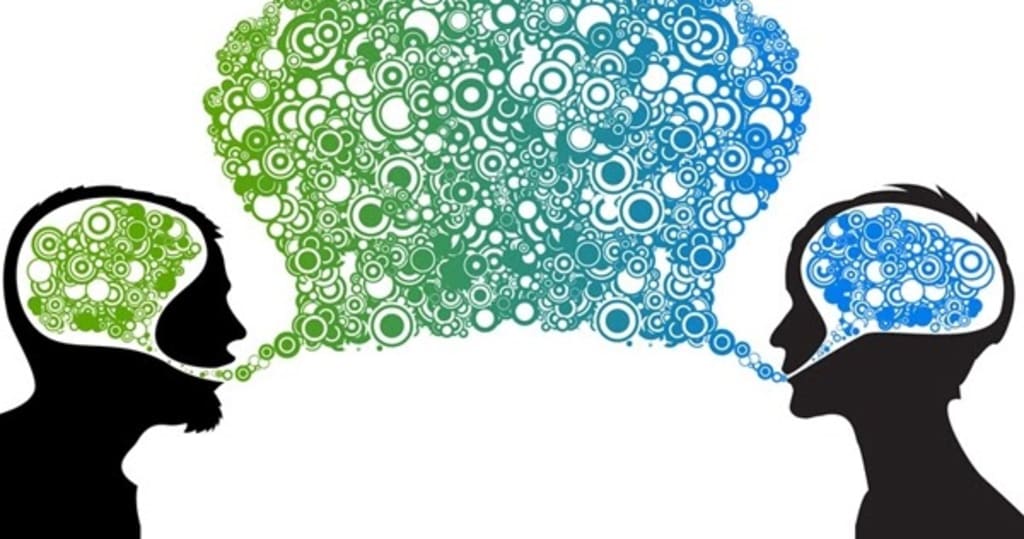The Importance of Communication in Human Relationships
Why is communication important in human relations?

Title: The Invaluable Significance of Communication in Human Relationships
Introduction:
Communication serves as the lifeblood that nourishes and sustains healthy and successful human relationships. Whether within personal connections, friendships, or professional interactions, effective communication acts as the cornerstone for understanding, empathy, and collaboration. This article delves deep into the profound importance of communication in fostering meaningful relationships, exploring its multifaceted dimensions and the extensive benefits it bestows upon individuals.
*Peter Thomas Roth Instant Temporary Face Lift Cream*
Body:
Establishing Deep Understanding:
Communication serves as the conduit through which individuals express their thoughts, ideas, and emotions. It provides a platform for sharing experiences and perspectives, facilitating a profound understanding between individuals. Active listening and engaging in open dialogue enable people to gain insights into each other's worldviews, fostering empathy, respect, and appreciation.
Resolving Conflict:
Conflict is an inevitable part of any relationship, but effective communication plays a pivotal role in resolving conflicts in a constructive and harmonious manner. Encouraging open and honest conversations allows individuals to express their concerns, while actively listening to the other party's viewpoint. Through mutual understanding and collaboration, resolutions can be reached that satisfy both parties. Clear and respectful communication prevents misunderstandings, eases tensions, and preserves relationships.
Building Trust:
Trust forms the bedrock upon which successful relationships are built, and communication serves as a key ingredient in establishing and maintaining trust. Honest and transparent communication allows individuals to share their thoughts, experiences, and vulnerabilities, fostering authenticity and reliability. Consistent and open dialogue strengthens trust over time, creating a solid foundation for deep and meaningful connections.
Cultivating Emotional Intimacy:
Effective communication contributes to the development of emotional intimacy within relationships. By openly expressing needs, desires, fears, and insecurities, individuals invite their partners or loved ones to understand and support them on a profound level. Sharing emotions and vulnerabilities through communication nurtures a stronger emotional connection, leading to increased intimacy, mutual care, and a sense of security.
Enhancing Collaboration:
In professional settings, communication is vital for collaboration and teamwork. Clear and concise communication ensures that team members comprehend their roles, responsibilities, and objectives. It facilitates the exchange of ideas, feedback, and knowledge, enabling the collective generation of innovative solutions. Strong communication skills cultivate a positive work environment, foster synergy, and enhance productivity.
Active Listening:
Effective communication extends beyond self-expression to encompass active listening. Active listening involves attentively and empathetically understanding the speaker's message, allowing individuals to truly absorb and appreciate the thoughts and emotions being conveyed. By actively listening, individuals demonstrate respect, validate the perspectives of others, and build stronger connections.
Promoting Cultural Understanding and Embracing Diversity:
In today's globalized world, effective communication plays a pivotal role in bridging cultural gaps and promoting diversity and inclusion. Engaging in cross-cultural communication allows individuals to gain insights into different perspectives, beliefs, and values. This understanding fosters empathy, reduces biases, and encourages acceptance and appreciation of diverse backgrounds, leading to enriched relationships.
Conclusion:
In conclusion, communication occupies an indispensable position in human relationships. It serves as a vehicle for expressing thoughts, resolving conflicts, building trust, and cultivating emotional intimacy. Effective communication facilitates collaboration, active listening, and cultural understanding. By valuing and honing strong communication skills, individuals can establish and nurture healthy, fulfilling relationships across all areas of life.
The Consequences of Communication Absence in Human Relationships
Introduction:
Effective communication is a vital component of human relationships, fostering understanding, trust, and connection. However, when communication is lacking or absent, various problems can arise, hampering the growth and health of relationships. This article explores the consequences of communication absence in human relationships, shedding light on the challenges that can emerge in the absence of meaningful communication.
Body:
Misunderstandings and Assumptions:
Without clear communication, misunderstandings become commonplace. People may interpret actions, words, or silence in different ways, leading to misinterpretations and assumptions. This lack of clarity can create tension, erode trust, and strain relationships.
Emotional Distance:
Communication acts as a bridge for emotional connection. When communication is absent or ineffective, emotional distance can develop between individuals. Without open dialogue and sharing of emotions, relationships may become shallow, lacking intimacy and closeness.
Unresolved Conflicts:
Conflict is a natural part of any relationship, but without effective communication, conflicts can escalate and remain unresolved. In the absence of communication, individuals may harbor resentment, avoid confrontation, or engage in passive-aggressive behaviors, perpetuating tension and damaging the relationship over time.
Lack of Trust:
Trust is built through honest and transparent communication. In the absence of communication, trust can erode, leading to skepticism, suspicion, and doubt. When people are unable to communicate their needs, desires, and concerns, it becomes challenging to establish a foundation of trust.
Decreased Collaboration and Cooperation:
Communication is crucial for collaboration and cooperation in various settings, including work, family, and friendships. Without effective communication, individuals may struggle to coordinate efforts, share ideas, or work towards common goals. This can hinder progress, lead to misunderstandings, and hamper productivity.
Reduced Intimacy:
Intimacy thrives on open and honest communication. In the absence of communication, emotional and physical intimacy can suffer. Partners may feel disconnected, emotionally distant, or misunderstood, leading to a decline in the overall quality of the relationship.
Inability to Meet Needs:
Communication allows individuals to express their needs, desires, and expectations. When communication is absent, meeting these needs becomes challenging. People may feel unheard, unsupported, or neglected, leading to dissatisfaction and frustration within the relationship.
Lack of Growth and Development:
Meaningful communication fosters personal growth and relationship development. Without communication, individuals may struggle to share their aspirations, seek feedback, or engage in constructive discussions. This stagnation can hinder personal development and limit the growth potential of the relationship.
Increased Resentment and Frustration:
The absence of communication can breed resentment and frustration. When individuals are unable to express themselves or have their voices heard, negative emotions can accumulate over time, straining the relationship and potentially leading to its deterioration.
Isolation and Loneliness:
Without communication, individuals may feel isolated and lonely, even within a relationship. The lack of connection, understanding, and shared experiences can leave people feeling disconnected and emotionally unsupported.
Communication is the lifeblood of human relationships. Its absence can lead to misunderstandings, emotional distance, unresolved conflicts, decreased trust, and reduced collaboration. Additionally, lack of communication can impede intimacy, hinder personal growth, and contribute to resentment and isolation. Recognizing the importance of effective communication and actively fostering open and honest dialogue is essential for nurturing healthy and fulfilling relationships.
About the Creator
WORKING BRAIN
This is my hobby






Comments
There are no comments for this story
Be the first to respond and start the conversation.